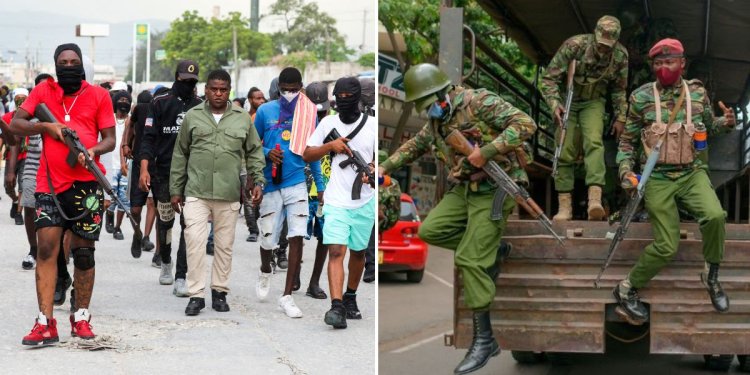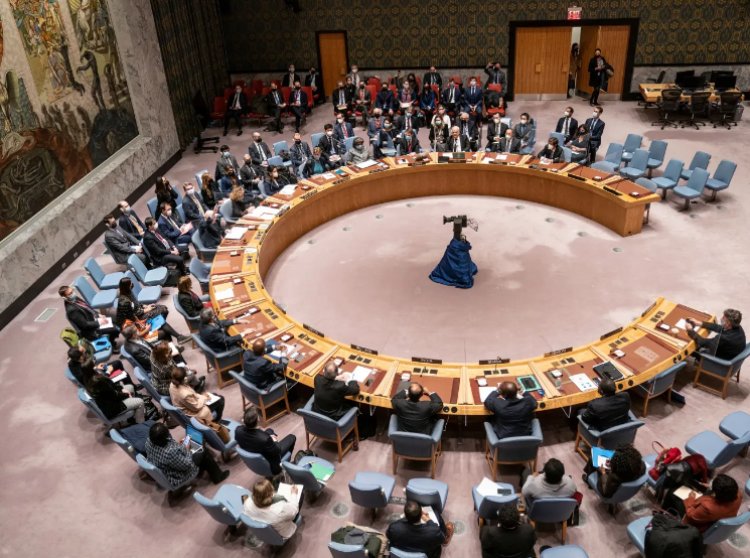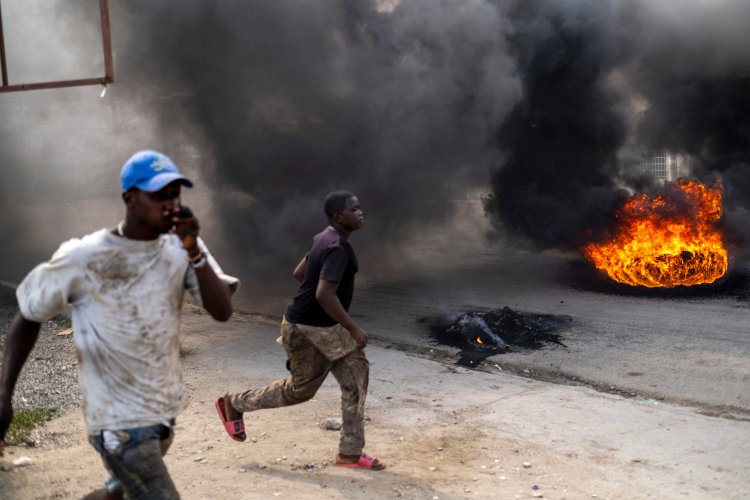When UN Will Decide On Kenya Deploying Police To Haiti
The council will vote on the resolution that would authorize a one-year deployment of a non-UN multinational force led by Kenya to Haiti to combat gangs and restore security.

The United Nations (UN) Security Council will vote on a resolution whereby Kenya will deploy its police officers to Haiti in North America, the third largest country in the Caribbean by area, on Monday, October 2.
The council will vote on the resolution that would authorize a one-year deployment of a non-UN multinational force led by Kenya to Haiti to combat gangs and restore security.
If successful, the resolution which was drafted in the US and welcomed Kenya’s offer to lead the multinational security force and stated that this would be a non-U.N. force funded by voluntary contributions, would authorize the force for one year, with a review after nine months.
“The 15 members of the Council will consider approving what is known as a Chapter VII provision of the UN Charter that authorises the use of force after all other measures to maintain international peace and security are exhausted,” UN News reports.

United Nations Security Council (UNSC) members during a past meeting in New York. /UNSC
In the voting system, according to Article 27 of the UN Charter, each member of the Security Council shall have one vote and the decisions of the Security Council on procedural matters shall be made by an affirmative vote of nine members.
“Decisions of the Security Council on all other matters shall be made by an affirmative vote of nine members including the concurring votes of the permanent members; provided that, in decisions under Chapter VI, and under paragraph 3 of Article 52, a party to a dispute shall abstain from voting,” it further states.
The resolution would allow the provision of operational support to Haiti’s National Police (HNP), which is underfunded and under-resourced, with only some 10,000 active officers in a country of more than 11 million people.
The force will be expected to help build the capacity of local police “through the planning and conduct of joint security support operations as it works to counter gangs and improve security conditions in Haiti.”
The force would also help secure “critical infrastructure sites and transit locations such as the airport, ports, and key intersections.”
Passage by the Security Council would authorize the force to “adopt urgent temporary measures on an exceptional basis” to prevent the loss of life and help police maintain public safety.
Leaders of the mission would be required to inform the council of the mission’s goals, rules of engagement, financial needs and other matters before a full deployment.
If approved by the UN, Kenya will deploy its force to Haiti by January 2024. This is as powerful gangs have seized control of key roads leading from Haiti’s capital to the country’s northern and southern regions, disrupting the transportation of food and other goods.
Caribbean nations and members of the CARICOM regional group, including Jamaica, the Bahamas and Antigua and Barbuda have also expressed their readiness to support the mission that will be led by Kenya’s force.
The Bahamas has committed 150 persons to support the multi-national force, while Jamaica said it cannot reach the 1,000 offered by Kenya, it “will give what we can.”
Foreign Affairs Cabinet Secretary Alfred Mutua expressed confidence in the mission, even though it has been met with criticism and mixed reactions from Kenyans who questioned whether police officers will achieve their mission, considering reports that gangs control 80 per cent of the country.
“We don’t think there’s going to be a lot of violence because these gangs are powerful because they don’t have anybody who can match them. They have guns and they are well armed but they don’t have a well-ironed team to match them,” Mutua responded to emerging fears.
Kenya formally established diplomatic relations with Haiti on Thursday, September 21, after an agreement signed by President William Ruto and Haiti Prime Minister Ariel Henry.
Although reports indicate that Kenyan police officers will not actively battle the gangs and will instead guard key government infrastructure, including airports, seaports, and main roads, questions have emerged on the capacity of Kenyan law enforcement to take on the vicious gangs if such a situation presents itself.
Currently, the country is in a full-blown crisis with Haiti politicians having deep-rooted connections with the gangs that have frustrated local police's efforts to keep them out.
So dire is the situation that gangs have taken over the country and control up to 90% of Haiti’s capital. This has led to a humanitarian crisis, as most parts of Haiti are no-go zones with the gangs erecting checkpoints, blocking food supply routes leaving many without food.

People walk along a street filled with smoke from burning tires during a protest against the assassination of Haitian President Jovenel Moise in Cap-Haitien, Haiti July 22, 2021. /REUTERS
To make matters worse, Haiti witnessed the assassination of four sitting presidents amidst the increase in insecurity and domination of gangs since gaining independence on January 1, 1804.
The wave of instability and violence can be traced back to the tumultuous post-independence period when Haiti became a breeding ground for political and economic chaos, eventually prompting the United States to launch a military intervention in 1915.
The four assassinations included the most recent one, Jovenel Moïse, who served as President of Haiti from February 2017 until his tragic death in July 2021. He was fatally wounded at his private residence by a group of 26 heavily armed individuals, during which the Haitian first lady, Martine Moïse, was also shot.
In 2022 alone, more than 2,000 deaths related to gang violence were recorded in the capital Port-au-Prince, with 1,114 people kidnapped by the gangs.

 admin
admin 




